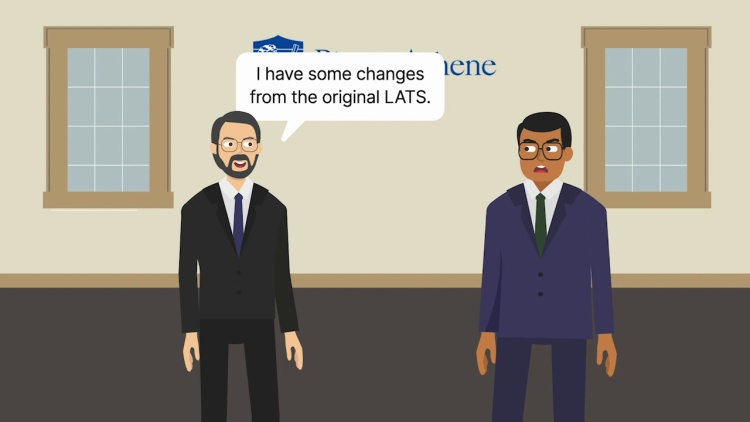SIGA Technologies, Inc. v. PharmAthene, Inc.
Delaware Supreme Court
67 A.3d 330 (2013)
- Written by Angela Patrick, JD
Facts
SIGA Technologies, Inc. (defendant) owned an experimental antiviral drug for treating smallpox. SIGA was facing financial difficulties and needed money to finish developing and testing the drug for market. SIGA approached PharmAthene, Inc. (plaintiff) for financial help. Ultimately, the companies agreed to try to merge. However, SIGA needed a bridge loan for immediate financial needs while the merger was being negotiated. PharmAthene agreed to give SIGA a bridge loan. As part of both the initial merger agreement and the bridge-loan agreement, SIGA agreed that, at a minimum, PharmAthene would get license agreement for the drug if the merger negotiations fell through. The parties had negotiated a license-agreement term sheet (LATS), with specific numbers, that was included as part of both the initial merger agreement and the bridge loan. Before the merger was completed, SIGA made significant progress proving the viability of the drug and received grants from the National Institutes of Health that provided extensive funding. As a result, the drug’s value increased drastically and SIGA no longer needed PharmAthene’s help. SIGA terminated the merger negotiations and sent PharmAthene a proposed final license agreement that increased PharmAthene’s payments from $16 million to $335 million and skewed many other profit and ownership terms to strongly favor SIGA. PharmAthene sued. The trial court found that: (1) the LATS was a type II preliminary agreement to negotiate a final license agreement in good faith and (2) but for SIGA’s bad-faith negotiations, a final agreement would have been reached in accordance with the terms of the LATS. The trial court then awarded PharmAthene promissory-estoppel damages. The case was appealed.
Rule of Law
Issue
Holding and Reasoning (Steele, J.)
What to do next…
Here's why 911,000 law students have relied on our case briefs:
- Written by law professors and practitioners, not other law students. 47,100 briefs, keyed to 997 casebooks. Top-notch customer support.
- The right amount of information, includes the facts, issues, rule of law, holding and reasoning, and any concurrences and dissents.
- Access in your classes, works on your mobile and tablet. Massive library of related video lessons and high quality multiple-choice questions.
- Easy to use, uniform format for every case brief. Written in plain English, not in legalese. Our briefs summarize and simplify; they don’t just repeat the court’s language.





